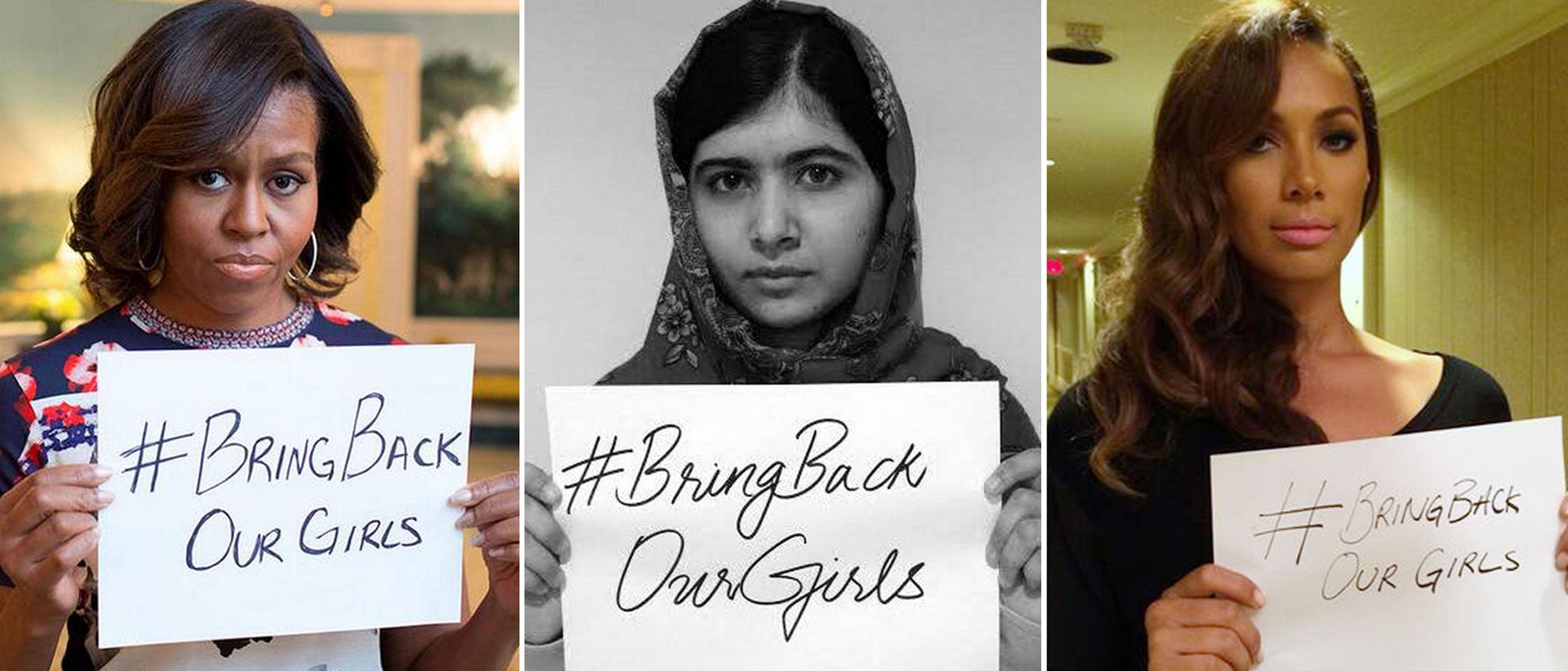The one chart that proves how fickle we are over #bringbackourgirls
Interest in the plight of the Chibok school girls drops as quickly as it peaks

On 14 April 2014, a group of militants from the notoriously brutal group Boko Haram broke into a school in Chibok, Nigeria, and kidnapped nearly 300 schoolgirls. More than 200 remain missing a year after their abduction.
The girls were taken in the dead of the night and militants, who in recent years have understood and capitalised on the power of social media, posted footage of their hostages online within a propaganda video soon after. Boko Haram's leader Abubakar Shekau vowed to marry off the girls to fighters or sell them as slaves. There are fears he has since carried out his pledge.
The world responded to the video on social media with the viral hashtag #bringbackourgirls. The hashtag, started by Nigerian lawyer Ibrahim M Abdullahi, was tweeted by Michelle Obama and other influential persons of note across the world. It became something the desperate mothers of the missing girls adopted and splashed on their posters, banners, and anything else that was likely to be photographed and appear in the news.

In the immediate weeks after their disappearance the hashtag was shared almost one million times. Boko Haram had committed a number of equally appalling atrocities before but this was the first to so vigorously capture the attention of most people outside of Nigeria, and this fact gave some hope in an increasingly bleak situation.
On 14 April 2015, the one-year anniversary of their disappearance, media organisations briefly put the Chibok schoolgirls back at the top of the news agenda.
Malala penned an open letter on the same day slamming world leaders for not doing enough to secure their release. Outlets ran interviews with witnesses to the abduction and #Bringbackourgirls was tweeted 37,000 times. It is now trending once again.
Join our commenting forum
Join thought-provoking conversations, follow other Independent readers and see their replies
Comments
Bookmark popover
Removed from bookmarks